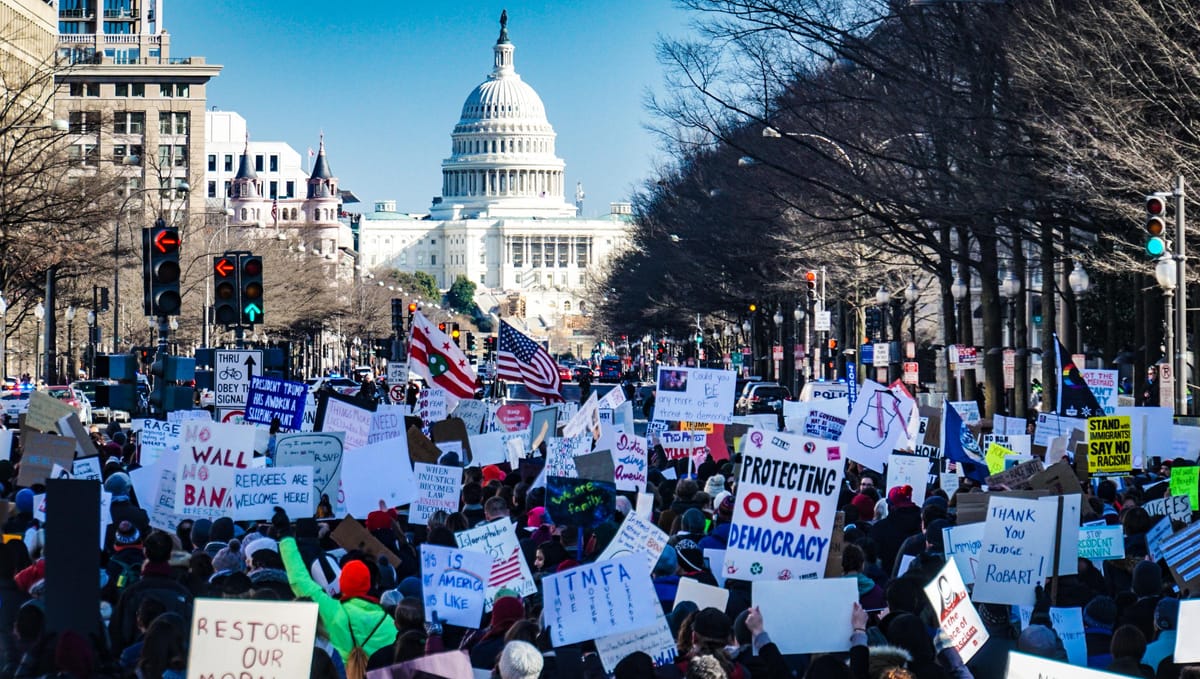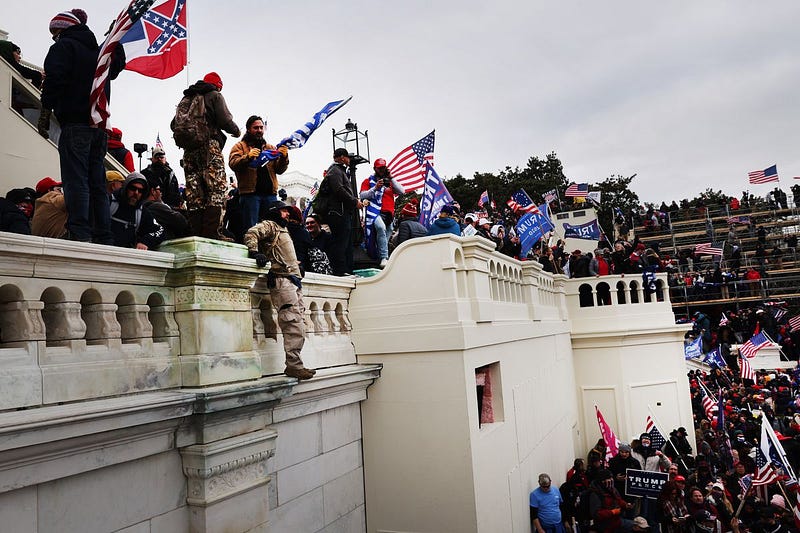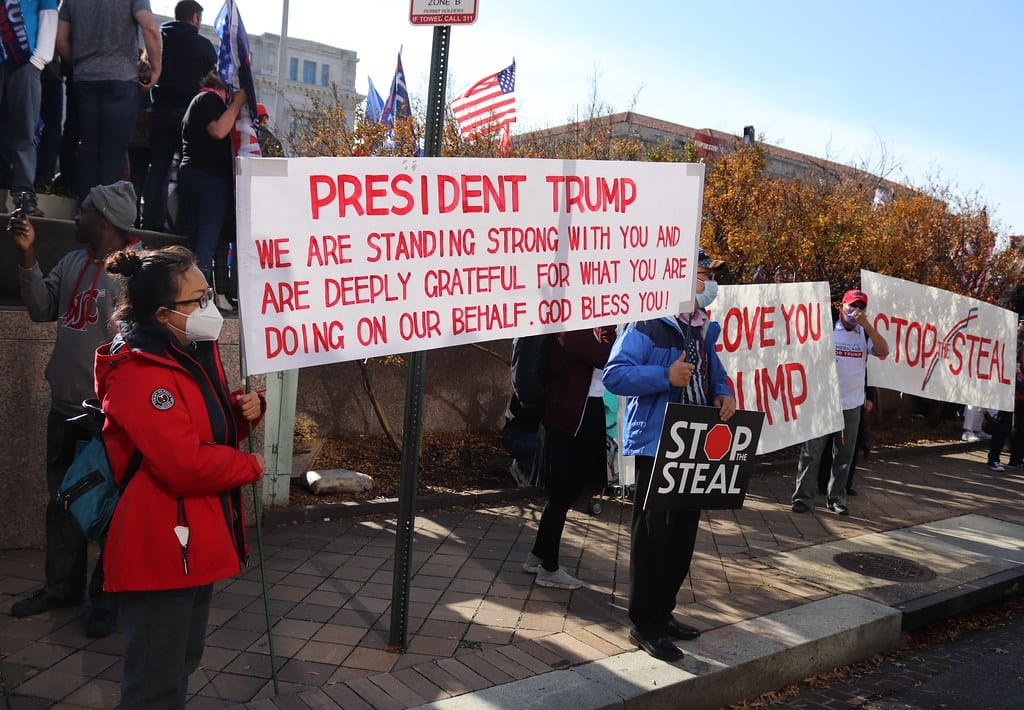
Four years ago, a couple of weeks after the frightening spectacle of armed insurrection in the United States on January 6th, I wrote an article on my Medium (which I've since ported over here). It was a reflection on both where I felt that violent moment had emerged from, its historical comparators, and what I felt would be needed to both protect and restore American democracy.
 George Patrick Richard BensonGeorge Patrick Richard Benson
George Patrick Richard BensonGeorge Patrick Richard Benson
Though it was a piece I wrote quickly, I remain really proud of both my reflections and how I was looking ahead at what needed to be done in democratic reform.
Since that time, I've only become more convinced that the state of democracy throughout the world has never been in greater threat and that it is the crisis of meaning-making, as discussed by people like Daniel Schmachtenberger, that is the central axis upon which that threat turns.
This morning I was listening to a brilliantly researched story for The Daily by the New York Times' Michael Barbaro and Jim Rutenberg about the likelihood of electoral system breakdown on November 5th and afterward.
The story details the effort by the group Project Sunlight, to ensure that election results are not certified ahead of January 6, 2025 (an illegal practice for any county government, it should be said). The project is funded by crypto millionaire Robert Beadles, and supported by the likes of Steve Bannon and others, and works at the county level to get commissioners who have the arcane and normally pro forma responsibility to accept and certify the vote counts in their jurisdiciton to disavow those results and instead to cast the entire election into question.
Beadles, a significant funder and ringleader of these efforts, has been ordered to pay hundreds of thousands of dollars in fines to various counties and election officials after lawsuit after lawsuit of his has been thrown out by judges. And yet he continues to persist.
 AP NewsUpdated [hour]:[minute] [AMPM] [timezone], [monthFull] [day], [year]
AP NewsUpdated [hour]:[minute] [AMPM] [timezone], [monthFull] [day], [year]
What's frightening is how successful Beadles' and others efforts have been in intimidating election offocials.
Linda So, Joseph Tafani, and Jason Szep reported in Reuters in 2022 that states were reporting, "mass departures of election staffers," and that,
In Pennsylvania [a crucial swing state], more than 50 county election directors or assistant directors have left in the state’s 67 counties since the 2020 vote. In South Carolina’s 46 counties, 22 election directors have left office. And 30% of Texas election officials have exited over that same time period; in one county, the entire elections staff resigned. Many officials in those states said threats, harassment and incessant voter-fraud claims were driving factors in the resignations.
Though that was in 2022, I have not yet heard anything to suggest that the pressure on voting officials is dying down - rather, in fact, it seems basically certain that with possible unexpected swings in Iowa and dogged results in many battleground states, that this will be the ugliest election in the past two centuries (and, beyond the Gore-Bush debacle, their have been some doozies).
These stories all return me to my simple premise that I had in 2021: that without a wholesale attack – practically, legislatively, and narratively – on the forces that brought the US to the brink then, those forces would simply try again.
I said then, and I believe even more strongly now, that the power of stories - not facts, policy, or even money - would be what would be the deciding factor of what would happen next. What I worried about most was that the perpetrators of January 6th would view that day as having been "so close" to achieving their aims, and that they'd get another try.

I can't cast aspersions on the work of so many good people to try to fight this tidal wave. The splintering of American (and everyone's) attention into rivaling - and utterly disconnected - epistemic camps is not something a little local organizing can overcome, but the bare facts is that the democratic capacity building that was needed has not succeeded.
People have spent their lives, and especially the past four years, trying to reinvigorate American democracy (efforts which go far, far beyond registering people to vote), and yet this work has not succeeded in building the trust that's needed to keep the system working and accountable.
The final thing I said in 2021 was that I felt we needed to take what hapened on January 6th - and the forces behind it - seriously. By that I didn't only mean that Democrats would have to govern well and deliver real results to Americans during a Biden administration, but that they would have to do the incredibly hard work of confronting the epistemic crisis that was unfolding in their country.
Four years later - and with the recent experience of the highly polarized and conspiracy theory-ridden British Columbia election - I remain sadly unconvinced that leaders who want to uphold a free and democratic soceity really understand what we're dealing with. We're still not categorizing these conspiratorial movements correctly: they represent an existential threat to our democracy.
Whatever happens on Tuesday, and in fact especially if Donald Trump should fail to win, I hope and pray we will finally see the problems for what they are, and act accordingly.
Sign up for George Patrick Richard Benson
Strategist, writer, and researcher.
No spam. Unsubscribe anytime.
